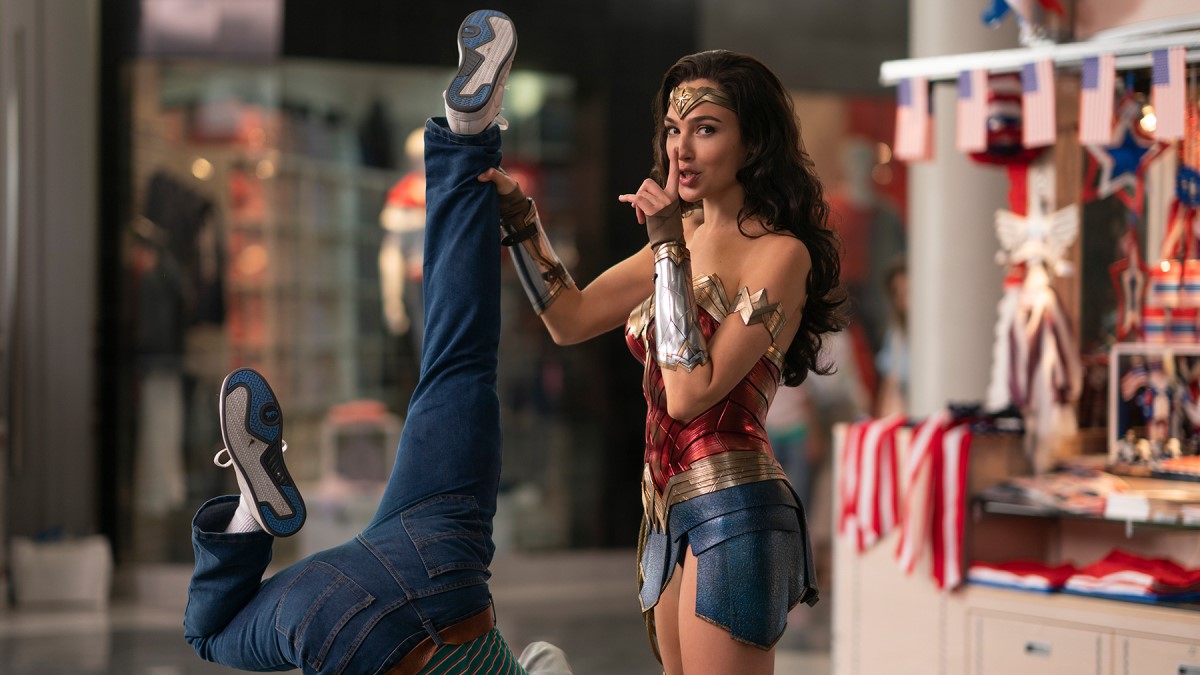Wonder Woman director Patty Jenkins slams streaming service movies – but is she right?
"All of the films that streaming services are putting out, I'm sorry, they look like fake movies to me"

Sign up for breaking news, reviews, opinion, top tech deals, and more.
You are now subscribed
Your newsletter sign-up was successful
Earlier this week, Wonder Woman 1984 director Patty Jenkins participated in a talk where she criticized the movies streaming services are releasing – and while the interview did get attention initially, the quotes have subsequently been pulled out of the original piece and are now being shared with disdain on social media.
"All of the films that streaming services are putting out, I'm sorry, they look like fake movies to me," Jenkins told an industry audience at CinemaCon (via LA Times). "I don't hear about them, I don't read about them. It's not working as a model for establishing legendary greatness."
It's helpful to read the quote as part of the larger discussion of theatrical movies versus streaming services in the piece. Jenkins says that releasing Wonder Woman 1984 on HBO Max was the "right choice" last year, but calls it "heartbreaking".
That "fake" quote doesn't unfairly represent her sentiments on movies releasing on streaming services, but her larger point is about safeguarding the theatrical movie experience.
She has kinder words to say about streaming TV. "I also have a deal to make things for Netflix, because I really believe in limited series and television series," she says, but points out that movies and TV are very different things.
So: is there any truth in what she's saying?
The thing is, Jenkins' perspective in that comment generally is reductive – streaming movies come from all kinds of sources.
Sign up for breaking news, reviews, opinion, top tech deals, and more.
Some are festival acquisitions, like Pieces of a Woman on Netflix or CODA on Apple TV Plus, some are bought from other movie studios like The Trial of the Chicago 7 or The Tomorrow War, and many are commissioned directly by streaming services from different production companies based on what they think their audiences will be interested in.
In short, there is no template that defines what a streaming movie is – David Fincher's Mank, for example, is a very different proposition to Steven Soderbergh's heist film No Sudden Move.
Both were acclaimed, and they might not even exist without the backing of streamers in this era of more conservative moviemaking. Streamers, then, are often a viable alternative to a system that arguably no longer serves certain types of filmmakers.
But, reading between the lines of Jenkins' comment, maybe there is some validity to the remark.
Is Jenkins wrong?
I can sort of see what Jenkins means with some of the movies you see on streamers. By "fake movies", I wonder if she means films like last week's Sweet Girl with Jason Momoa on Netflix – which stands at a mighty 18% on Rotten Tomatoes.
Here's a film starring an actor who plays a superhero in a billion-dollar movie franchise, and who heads up See, a massive-budget Apple TV Plus series. It sort of looks like a movie, but definitely not one you can imagine paying to see at the cinema. And that might be a worthwhile distinction.
Are the types of movies we used to see going straight to DVD now living on streaming services? Some of Netflix's action movies, in particular, feel that way. They're not necessarily a substitute for what we'd typically enjoy at the theaters, which may be by design.
Streaming movies just come and go when they're bad. See also 2019's Polar, starring Mads Mikkelsen, which absolutely features a notable lead but is never something I'd pay to watch by itself. And I can see why someone might label those as 'fake movies' (not that Jenkins was specific about the movies she was discussing).
But, that doesn't tell the whole story. Netflix has been releasing solid movies throughout the pandemic, hence why the likes of Army of the Dead, Enola Holmes and Extraction have all been enormously popular.
Your mileage on them might vary, but it was nice to have new things to look forward to over the past year, just like it was for people who got to see Wonder Woman 1984 on Christmas Day.
There are absolutely some duds coming out from Netflix on a regular basis – but it also has a track record of supporting filmmakers whose work might not get made elsewhere. Other streamers, too, are in a similar situation of figuring out what a small screen movie even looks like in 2021.
On a good day, they arguably supplement the moviegoing experience rather than replace it. But the last year has made the line between streaming movies and 'real' movies blurrier than ever.
Why movies on the big screen matter
The thing is, the "fake movies" sentiment aside, Jenkins' overall point of view is very sensible. Movie studios have spent the pandemic being experimental – whether it's releasing movies simultaneously (also know as 'day-and-date') on HBO Max and in theaters, or using Disney Plus Premier Access to charge people extra to watch from home.
But there are arguably too many streaming services, and the theatrical experience is why you have franchises like the MCU and the Fast and Furious movies in the first place. They make them financially viable, and it's why they need to be preserved.
"I'm not a fan of day-and-date and I hope to avoid it forever," Jenkins added. "I love the theatrical experience, and I don't understand why we're talking about throwing it away for 700 streaming services that there's no room for in the marketplace.
"It doesn't make sense for studios that have billion-dollar industries to throw them in the garbage so they can roll the dice at competing with Netflix. It's crazy to me."
Jenkins is being too harsh on the state of streaming movies in that single comment – but her wider point is valid. There's no point seeing the theatrical experience as a necessary casualty in a streaming-led world.
Culturally, it's not worth it – and financially, it probably won't be worth it either.

Samuel is a PR Manager at game developer Frontier. Formerly TechRadar's Senior Entertainment Editor, he's an expert in Marvel, Star Wars, Netflix shows and general streaming stuff. Before his stint at TechRadar, he spent six years at PC Gamer. Samuel is also the co-host of the popular Back Page podcast, in which he details the trials and tribulations of being a games magazine editor – and attempts to justify his impulsive eBay games buying binges.